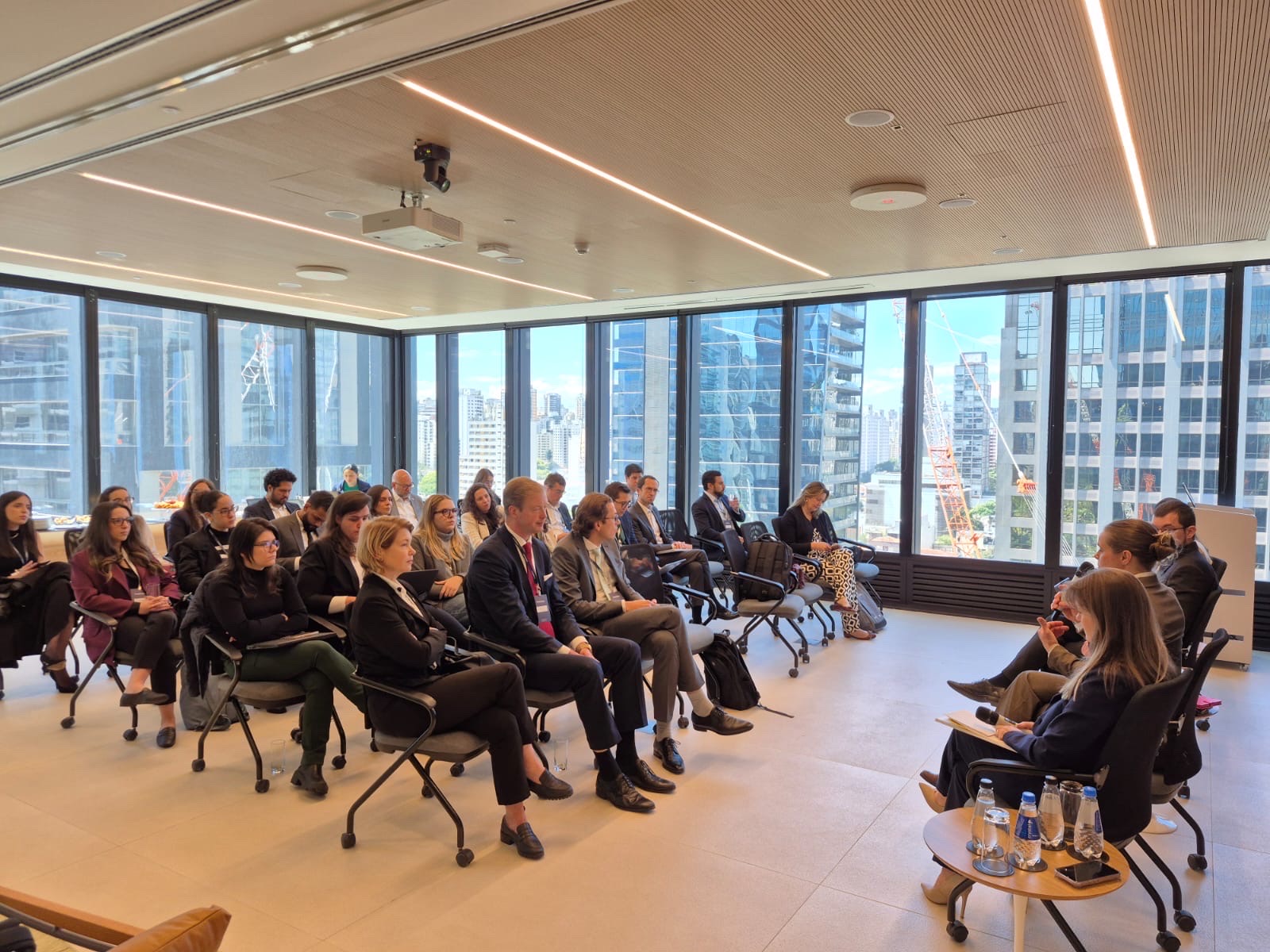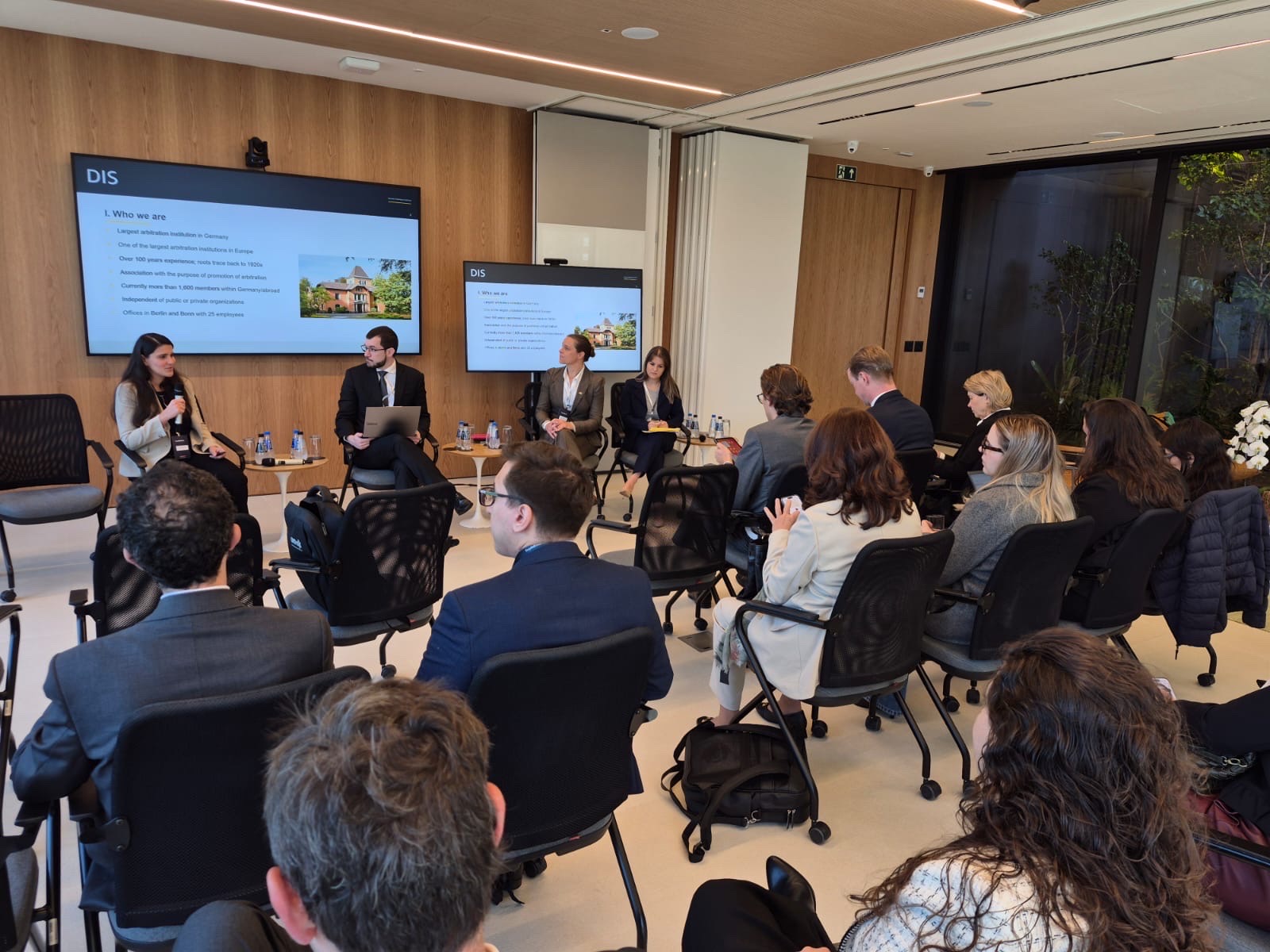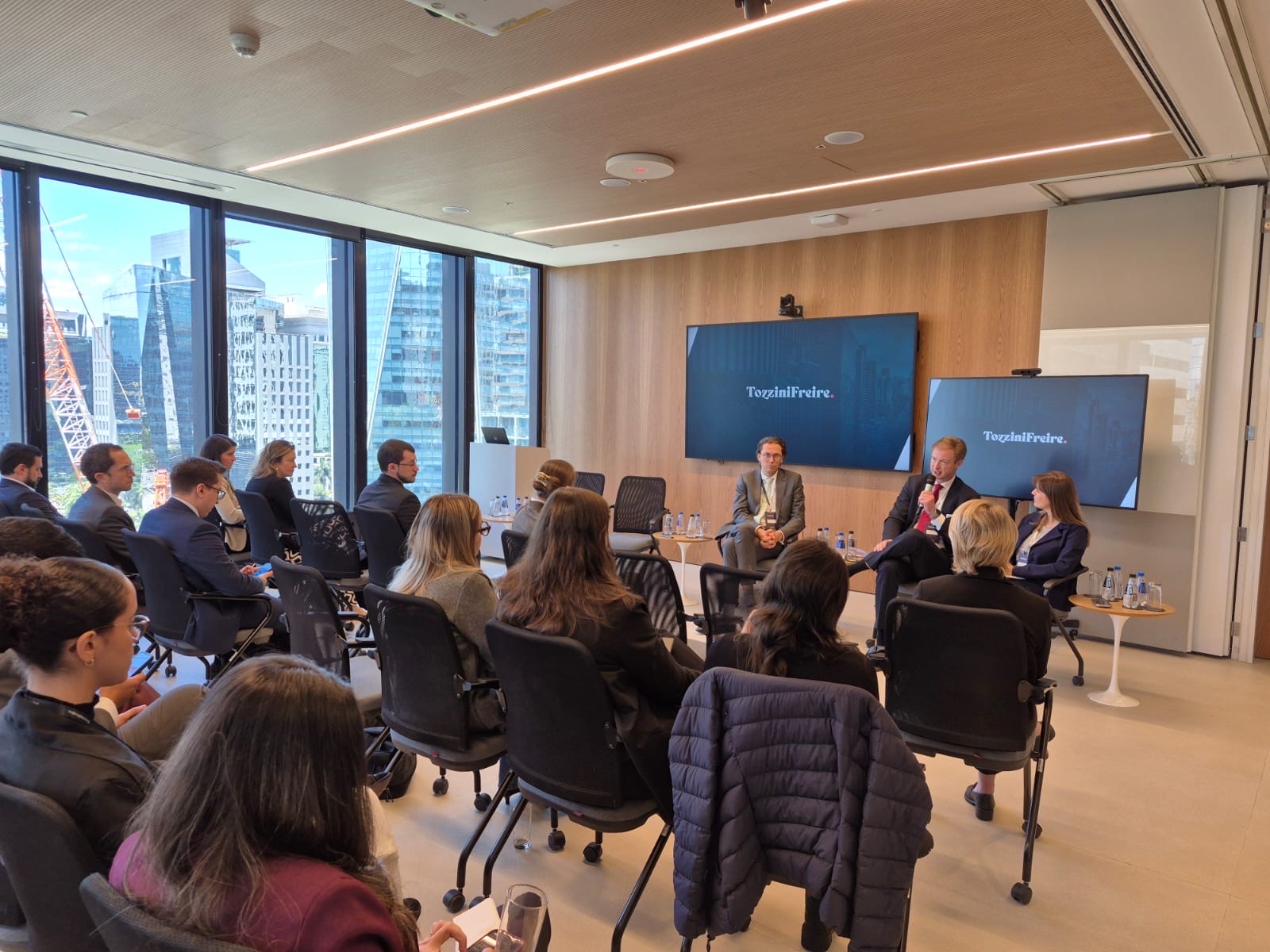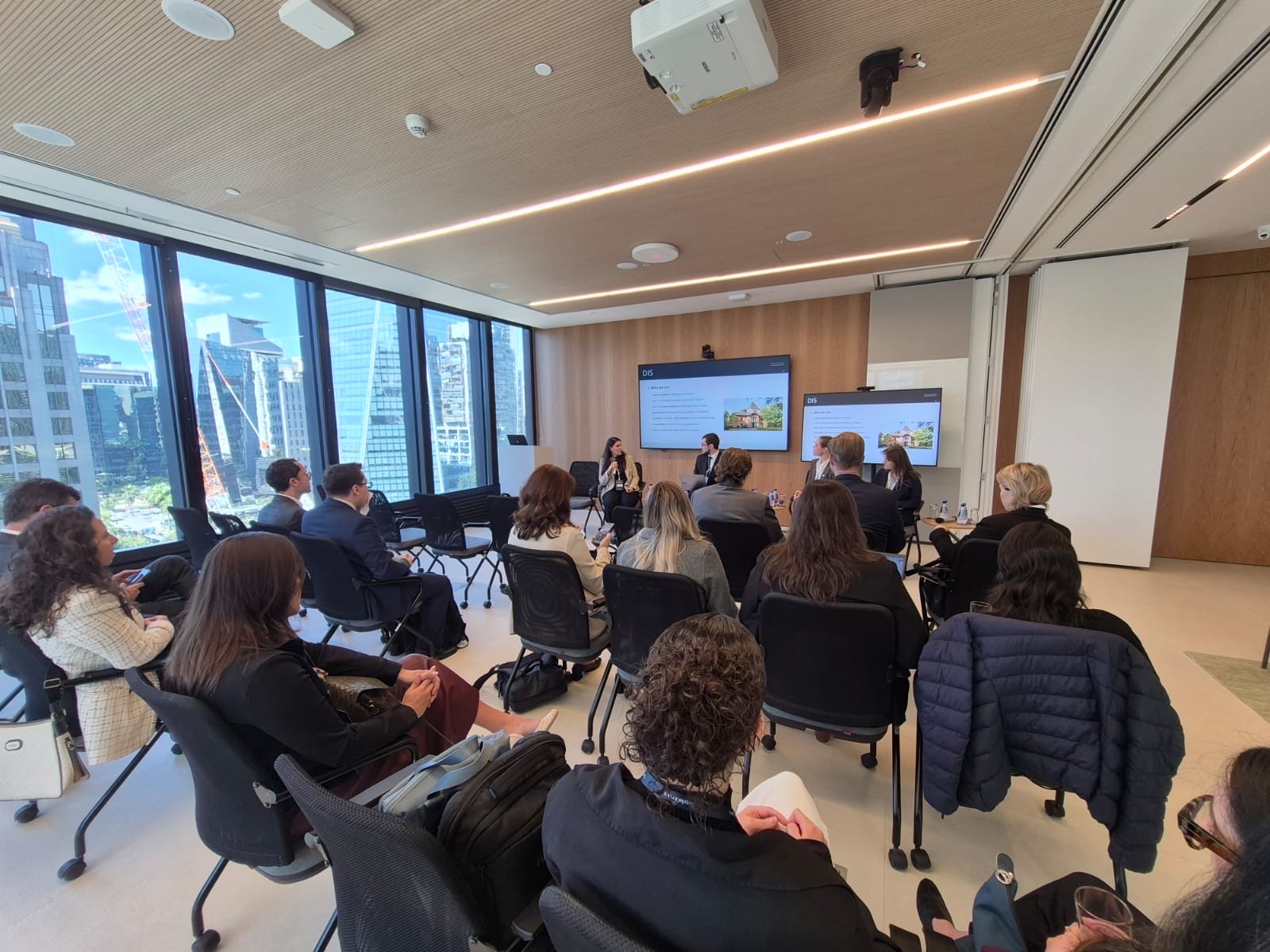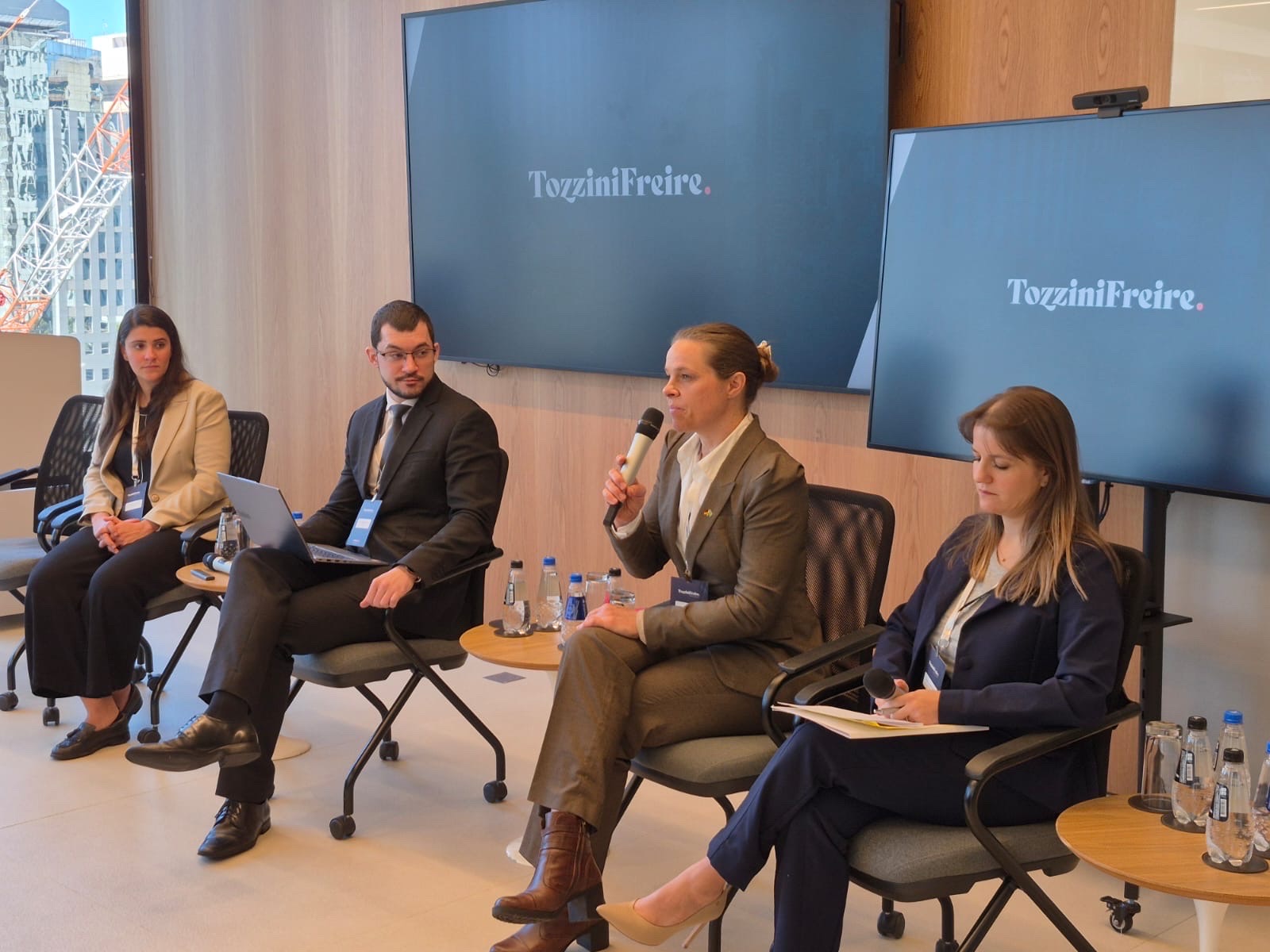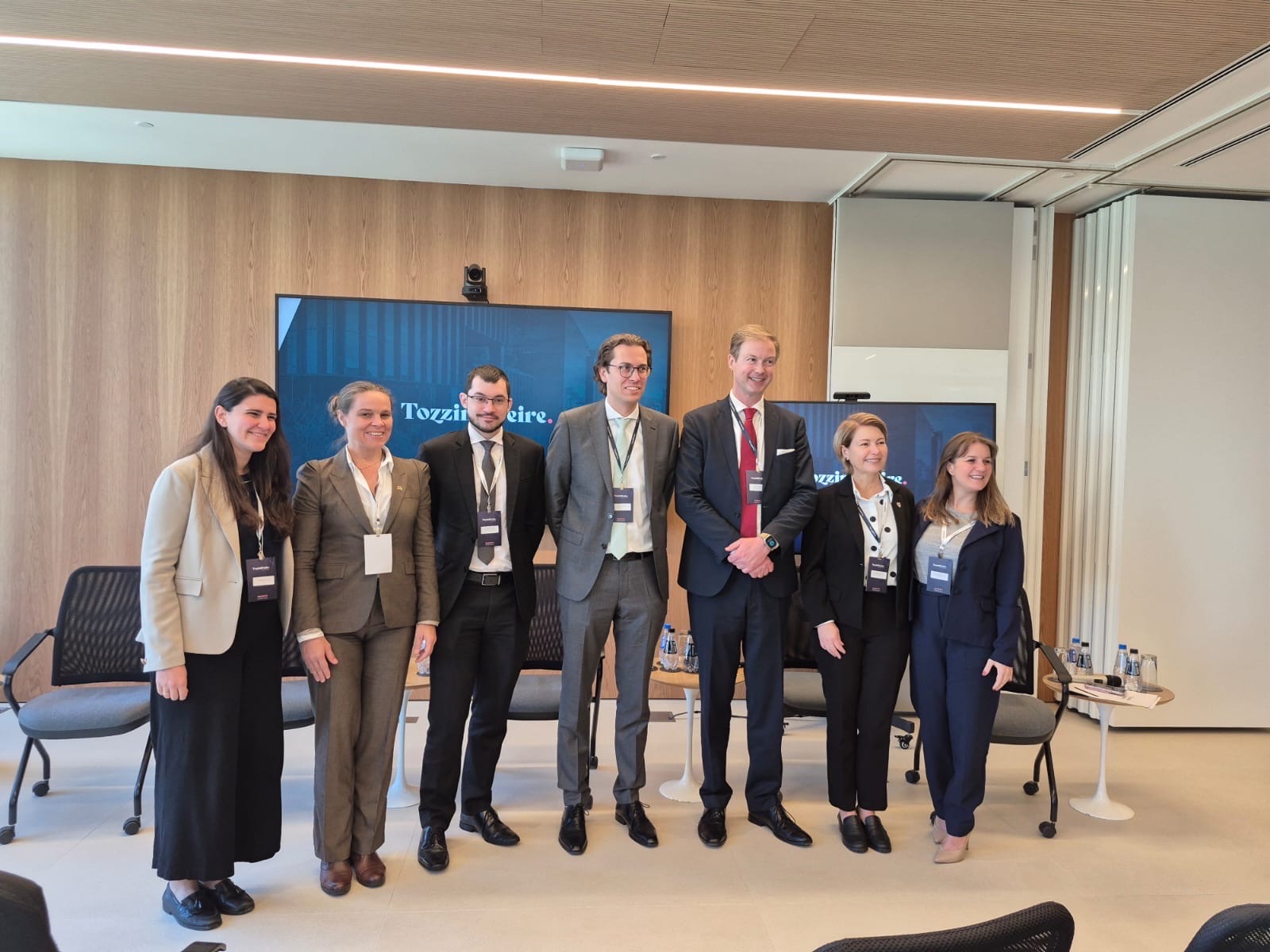On October 22, 2025, from 9 a.m. to 12 p.m., TozziniFreire Advogados’ new headquarters on Faria Lima hosted the in-person event “Developments in the German-Brazilian Trade”, held in partnership with the German-Brazilian Working Group, the German Arbitration Institute (DIS), the São Paulo Arbitration Week (SPAW), and the Center for Arbitration and Mediation (CAM-CCBC).
The event brought together renowned experts to discuss the trends and challenges in trade between Germany and Brazil, including legal aspects, investments, commercial relations, and strategic opportunities.
The first panel was opened by Carolina Matthes Dotto, partner at TozziniFreire Advogados, who provided an overview of the commercial relationship between Brazil and Germany. Mariana Candido, representing DIS, presented the projects of the German Arbitration Institute, the largest arbitration institute in Germany, and noted that over 65% of cases are closed early.
Andreas Maximillian, representing CAM-CCBC, explained the creation of special committees to address arbitration challenges and improve processes, highlighting that more than 79 arbitrations were recorded in 2025. He also shared the recent formation of a permanent committee composed of a large group of companies with a two-year mandate and invited attendees to join the association.
The first panel also covered Germany’s trade relations with Mercosur and its main challenges, including the unpredictability of commercial relations. Gloria Rose, a specialist in German trade and investment, stated: “In the future, we will need to find common ground for new possibilities between Brazil and Germany.”
Key topics included the trade agreement negotiated between the two countries last year, the influence of recent geopolitical changes, and a sense of positive change among European Union countries. Regarding the sectors most affected by export tariffs between Germany and Brazil, the machinery and equipment sector stood out. It was emphasized that all parties will benefit from the agreement, which is expected to be signed soon.
The second panel focused on the perspectives of German companies investing in Brazil and the common topics that lead to disputes between the two countries. Panelists Tim Rauschning and Alex Backsmann, experts in the field, participated. According to Tim, it is important to have an arbitrator on the other side of the table and a dispute resolution mechanism. He stressed that German investors should assess risks not covered in contracts, such as those related to the Brazilian government, additional taxes, and cultural differences. Alex commented that many German companies are unfamiliar with Brazilian legal guidelines, often closing deals with handshakes or relying solely on written contracts, unaware of Brazil’s banking security mechanisms that protect investors.
The closing remarks were delivered by Cristina Mastrobuono, also representing CAM-CCBC, who thanked everyone and highlighted that this was the first event of the German-Brazilian Working Group. She invited attendees to participate in the working group and future events.
Check out some highlights from the event:
